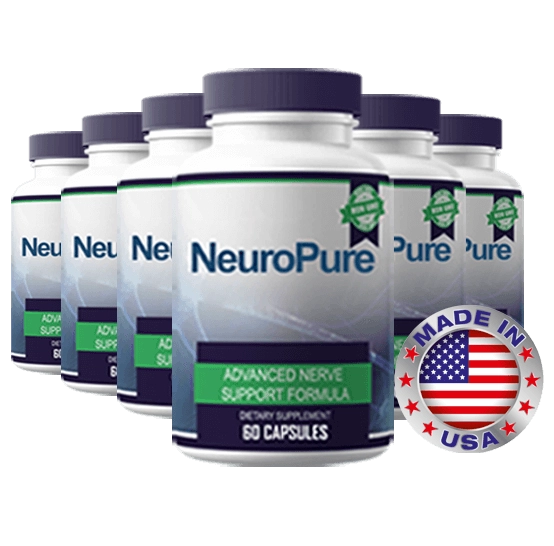Neuropathy is a condition that affects millions of people worldwide, leading to symptoms such as burning, tingling, numbness, and pain in various parts of the body—most commonly in the hands and feet.
This condition can significantly impact a person’s quality of life, making even the simplest activities challenging.
A common question that arises is: can neuropathy be reversed?
The answer isn’t entirely straightforward because neuropathy has different types and causes. However, in some cases, neuropathy symptoms can be reduced or even reversed with the right approach.
This article explores the causes of neuropathy, potential treatments, and whether there is a path to recovery.
Understanding Neuropathy
Neuropathy, or nerve damage, occurs when the peripheral nerves—those outside of the brain and spinal cord—are damaged. These nerves send signals between the central nervous system and the rest of the body, controlling movement, sensation, and involuntary processes like digestion and circulation.
Common Types of Neuropathy:
- Peripheral Neuropathy: Affects the hands, feet, arms, and legs.
- Autonomic Neuropathy: Affects involuntary processes like heartbeat and digestion.
- Proximal Neuropathy: Affects the thighs, hips, or buttocks.
- Focal Neuropathy: Targets a specific nerve or group of nerves.
Neuropathy can affect sensory, motor, and autonomic nerves, leading to a wide range of symptoms. Sensory neuropathy may cause pain, numbness, or hypersensitivity, while motor neuropathy can result in muscle weakness or twitching. Autonomic neuropathy affects processes like blood pressure regulation, making it particularly serious.
Causes of Neuropathy:
- Diabetes (the leading cause of peripheral neuropathy)
- Infections (e.g., shingles, HIV)
- Autoimmune disorders (e.g., lupus, Guillain-Barre syndrome)
- Vitamin deficiencies (particularly B vitamins)
- Exposure to toxins (e.g., heavy metals, chemotherapy)
- Alcohol abuse
- Injuries or repetitive stress (e.g., carpal tunnel syndrome)
Certain medications, such as those used for chemotherapy or treating infections, can also lead to neuropathy. Prolonged exposure to environmental toxins like pesticides or lead can exacerbate nerve damage.
Can Neuropathy Be Reversed?
In some cases, yes—neuropathy can be reversed or significantly improved. The key to reversal lies in identifying and addressing the root cause. For example:
- Diabetic neuropathy can improve with blood sugar control.
- Nutritional neuropathy caused by a vitamin B12 deficiency can often be reversed with supplements.
- Toxin-induced neuropathy may be improved by eliminating exposure to harmful substances and undergoing detoxification.
However, some types of nerve damage, particularly those caused by chronic conditions or long-term neglect, may only be partially reversible or may require lifelong management.
Nerve cells, known as neurons, can regenerate slowly, but they require the right conditions to do so. Early intervention can make a significant difference in outcomes.
Signs of Potential Reversal
Reversal is more likely if:
- The neuropathy is caught early.
- The underlying cause is addressed promptly (e.g., stabilizing blood sugar levels, resolving infections).
- There is active nerve regeneration supported by a healthy lifestyle and treatment plan.
Signs That Nerves May Be Healing:
- Decreased numbness or tingling.
- Gradual return of normal sensation.
- Reduction in pain intensity.
- Occasional “pins and needles” sensation as nerves regenerate.
Some individuals may notice muscle twitching or increased sensitivity in certain areas as nerve connections are restored.
Key Approaches for Reversing Neuropathy
1. Managing Blood Sugar Levels
For individuals with diabetes, controlling blood sugar is crucial for preventing further nerve damage and allowing healing to occur. Studies show that maintaining stable glucose levels can help reduce neuropathy symptoms and even promote nerve regeneration.
- Frequent glucose monitoring: Ensures levels remain within a healthy range.
- Low-glycemic diets: Help prevent spikes and dips in blood sugar.
- Medications or insulin therapy: Prescribed by doctors to maintain optimal control.
2. Nutrition and Supplementation
Deficiencies in vitamins, particularly B vitamins, are a common cause of neuropathy. Ensuring that your diet includes sufficient B12, B6, and folate can help repair and regenerate damaged nerves.
Foods Rich in Nerve-Supporting Nutrients:
- Vitamin B12: Found in fish, eggs, dairy, and fortified cereals.
- Folate: Found in leafy greens, avocados, and lentils.
- Omega-3 Fatty Acids: Found in salmon, flaxseed, and walnuts.
Supplements for Nerve Health
In addition to a balanced diet, some supplements are formulated specifically to support nerve repair and reduce inflammation. Explore top options to support nerve repair with supplements that enhance recovery and nerve function.
One example is NeuroPure, which contains a blend of natural ingredients such as Prickly Pear, Passionflower, and Corydalis. These ingredients have been shown to reduce oxidative stress and block harmful enzymes that damage nerves.

Click here to try NeuroPure for effective nerve support.
3. Reducing Inflammation and Detoxification
Chronic inflammation and exposure to toxins, such as heavy metals, can contribute to neuropathy. Products designed to help the body detoxify and reduce inflammation can play a vital role in nerve repair.
NerveDefend is a product that targets the body’s toxic load by using ingredients like Marshmallow Root, Prickly Pear, and Passionflower to support the body’s natural detoxification process and calm inflamed nerves.

Click here to try NerveDefend and experience relief from nerve pain.
Additional Detoxification Methods:
- Hydration: Drinking plenty of water helps flush toxins from the system.
- Anti-inflammatory foods: Turmeric, ginger, and blueberries can help reduce systemic inflammation.
- Saunas and exercise: Promotes sweating, which can eliminate certain toxins through the skin.
For more ways to reduce inflammation naturally, consider integrating herbal remedies and lifestyle adjustments into your routine.
4. Physical Activity
Exercise can improve blood flow, strengthen muscles, and support nerve regeneration. Low-impact activities such as walking, swimming, or yoga are beneficial for stimulating nerves without causing additional damage. You can also explore targeted exercises for neuropathy relief to improve circulation and reduce daily discomfort.
- Aerobic exercises improve circulation.
- Stretching exercises help reduce stiffness and improve mobility.
- Strength training can support weakened muscles affected by nerve damage.
Consistent movement helps maintain muscle strength and improves overall nerve signaling.
5. Neuromuscular Stimulation Devices
Devices that use electrical impulses to stimulate nerves and improve circulation can be effective in relieving symptoms and supporting nerve recovery. Neuromuscular electrical stimulation (NMES) devices help enhance blood flow and stimulate muscle contractions.
- Transcutaneous Electrical Nerve Stimulation (TENS): Commonly used to relieve nerve pain.
- NMES devices: Focus on muscle recovery and strengthening.
While not a direct cure, these devices can support overall nerve health, particularly for individuals dealing with numbness, tingling, or cramping in the legs and feet.
When Full Reversal May Not Be Possible
In cases where neuropathy is caused by genetic disorders, long-term diabetes, or chemotherapy-induced damage, full reversal may be difficult. In these situations, the goal is often to slow the progression of the disease, manage symptoms, and improve quality of life.
Patients should work closely with healthcare professionals to develop a personalized treatment plan, which may include pain management, lifestyle changes, and supportive therapies.
Lifestyle Tips for Managing Neuropathy
- Quit Smoking: Smoking constricts blood vessels, reducing circulation and making it harder for nerves to heal.
- Limit Alcohol: Alcohol can exacerbate nerve damage.
- Prioritize Sleep: Proper rest allows the body to heal and repair damaged nerves.
- Stay Hydrated: Drinking enough water supports overall cellular health and nerve function.
- Reduce Stress: Chronic stress can increase inflammation and worsen neuropathy symptoms.
When to Seek Medical Attention
It’s essential to consult a healthcare provider if:
- You experience sudden, severe pain or numbness.
- You notice sores or ulcers that are slow to heal.
- You have significant muscle weakness.
A doctor may recommend medications, physical therapy, or more targeted interventions based on the type and cause of your neuropathy.
Conclusion: Finding Hope in Neuropathy Treatment
While neuropathy may feel overwhelming, there is hope for improvement—and in some cases, reversal—depending on the underlying cause and the steps you take. Addressing root causes like diabetes, nutrient deficiencies, or toxin exposure can significantly impact your nerve health.
Products like NeuroPure and NerveDefend are formulated to support nerve repair by targeting inflammation and oxidative stress. Additionally, adopting lifestyle changes such as regular exercise, a nutrient-rich diet, and stress management can further enhance your recovery.
If you're seeking a supplement to aid your nerve health journey, click here to try NeuroPure for targeted support or click here to try NerveDefend for a detoxifying approach.
Ultimately, the path to reversing neuropathy requires a comprehensive approach that combines medical treatment, lifestyle adjustments, and supportive products.
By working closely with your healthcare provider and remaining consistent in your efforts and remaining consistent in your efforts, you can manage neuropathy effectively and, in some cases, reverse its effects.